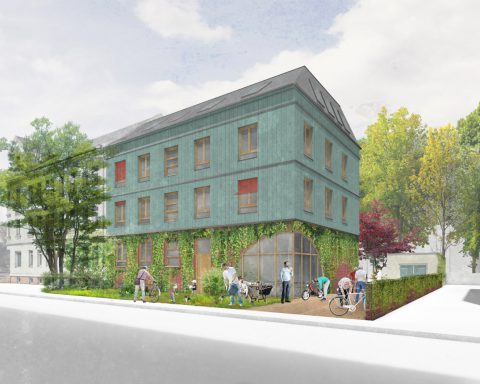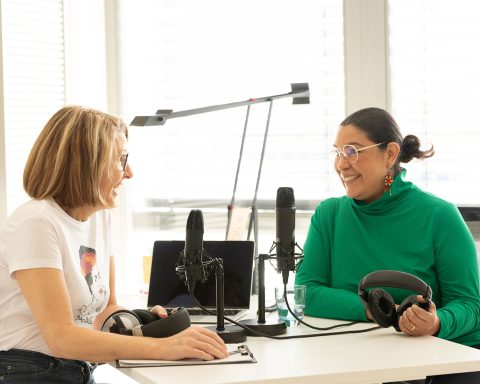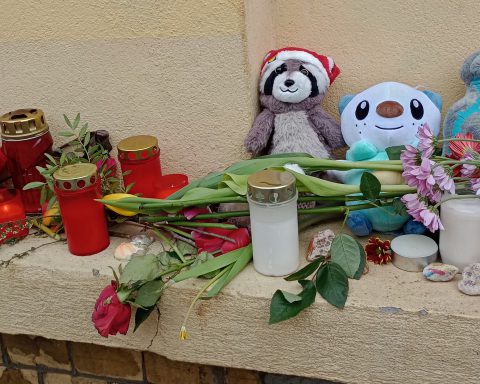Navigating the JobCenter and German bureaucracy in general can be difficult in the best of times. In case you’re unsure where to begin if you require financial support due to coronavirus, we bring you a breakdown from an expert of how the process works locally.
Changes to Applying for JobCenter Support (unemployment benefit) in Leipzig
Some of you may have heard that the regulations for getting financial support from the state have been adapted to the current situation around Covid-19. The legal framework for this can be found in the Social Protection Package (Sozialschutz-Paket) passed by the German government.
As the situation is new and changing, this information only aims at providing an overview of the process. Some information has been simplified. Assessing entitlements for migrants requires a combination of different laws, e.g. the Residency Act (Aufenthaltsgesetz) and Social Security Law (Sozialrecht), and so can be quite complicated. For some individuals, receiving state support can affect their residency status; therefore it is recommended to contact an advisory service to assist with your application (such as the MBE service, see contact details below).
JobCenter – Unemployment Benefit II (Arbeitslosengeld II, ALG II, SGB II, also known as Hartz IV)
The JobCenter is responsible for the state benefit Arbeitslosengeld II. This is paid on a monthly basis, usually transferred into a bank account. It is important to know that even if you are working, you may be able to receive some ‘top-up’ support from the JobCenter if your income isn’t sufficient to live on.
You can apply for this benefit by contacting them via:
Telephone: 0341 913 10 540 / 0341 913 10 705
Email: jobcenter-leipzig@jobcenter-ge.de
Post: JobCenter Leipzig, Postfach 100831, 04008 Leipzig
Online: via the portal www.jobcenter.digital (for this you first need to register online. Once you receive log-in details by post, you can upload your forms and documentation here).

The JobCenter is working under challenging circumstances so do have some patience; they will do their best to handle your query as quickly as possible.
It’s most straight-forward if you make the application in German. If you feel your German isn’t sufficient for this, feel free to contact an MBE or other advisory service for assistance. It’s recommended to make a written application (email or post) rather than by phone as then you have evidence that you lodged your application on a certain date.
If you wish to apply as soon as possible and do not yet have all the necessary forms and documentation, it’s sufficient to inform them of your wish to apply and they will send you the forms. Your application is considered as lodged at that point, i.e. if you apply on April 25th but don’t supply the rest of the necessary documentation until May 6th, then if your application is approved, the payments will date from April. Arbeitslosengeld II is back-dated to the start of the month, i.e. if your application made on April 25th is approved, you will receive financial support for all of April.
If you haven’t already supplied it, the JobCenter will contact you by email or post regarding the rest of the information. The main things they need to know about are your personal details (name, address, date of birth etc.), any income (e.g. from employment, child benefit), your accommodation costs (generally by means of a rental contract) and residency status (there is an additional form for EU citizens). They also need to know whether they are assessing you as a sole individual or whether the needs and income of your spouse/partner and/or children need to be taken into account. The unit of assessment for the JobCenter is called the Bedarfsgemeinschaft. This can be one person or a group. Each application is given a unique Bedarfsgemeinschaftsnummer (or BG-Nummer) to help track the application.

The process has been simplified for applications until June 30th. The main application form is called vereinfachter Antrag auf Arbeitslosengeld II and can be found alongside most other required forms here:
Vereinfachter Antrag auf Arbeitslosengeld II – Main Application Form
The forms are only available in German but there are guides to applying in 15 languages here (please note the guides are for the standard JobCenter application and not everything may be relevant to current circumstances):
Multilingual guides for the application
The most common additional forms needed are KDU (about your rental costs), KI (if you have a child), WEP (for other members of your family) and EK (if you are receiving income from work or other benefits).
With the forms you have to provide supporting documentation, the most common ones being:
- Leipzig registration (Anmeldung)
- Passport or national ID
- Rent contract
- Copy of German health insurance card
The required documents vary from person to person depending on their circumstances but the JobCenter will let you know what they need.
If you are in financial difficulty while your application is being processed, it is possible to request an advance payment from the JobCenter. For this you need to call them.
The decision whether to grant you financial support or not is communicated by a written document sent to you in the post called a Bescheid. If your application for state support is turned down, you have the opportunity to appeal (Widerspruch) the decision. This is generally possible within a month’s deadline of receiving the negative decision. Here it is also recommended to obtain third-party advice on how best to formulate an appeal.
JobCenter also provides other support, e.g. ensuring children’s access to education and social activities (Bildung und Teilhabe), additional funding for single parents, etc.
If you are not entitled to JobCenter support, there may be other support sources available to you. Among them are Wohngeld (rent supplement), Kinderzuschlag (child supplement), and Sozialhilfe (social assistance).
Further information relevant to those living in Leipzig can be found here (in German).
Éanna O’Donnell works as a migrant advisor (MBE – Migrationsberatung für erwachsene Zuwanderer) with the Verband binationaler Familien und Partnerschaften in Leipzig. Consultations are free of charge and confidential. His contact information can be found here.
Migrants in need of advice can also download the app mbeon for free to find Éanna and other advisors and ask them questions.
Other advisory services in Leipzig for migrants can be found here.










